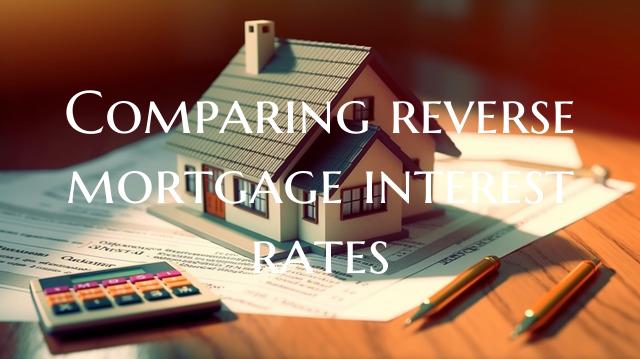Comparing reverse mortgage interest rates

When considering a reverse mortgage, one crucial aspect to evaluate is the interest rate associated with the loan. Comparing reverse mortgage interest rates among different lenders can help you secure the most favorable terms for your financial circumstances.
Interest rates on reverse mortgages can vary depending on various factors, including the type of loan, the lender, prevailing market conditions, and the specific terms of the agreement. Generally, there are two main types of reverse mortgages: Home Equity Conversion Mortgages (HECMs) insured by the Federal Housing Administration (FHA) and proprietary reverse mortgages offered by private lenders.
When comparing reverse mortgage interest rates, it's essential to understand how these rates are structured. Some lenders offer fixed-rate reverse mortgages, where the interest rate remains constant throughout the loan term. In contrast, others provide adjustable-rate reverse mortgages, where the interest rate can fluctuate based on market conditions.
To make an informed decision, consider obtaining quotes from multiple lenders and comparing their interest rates, closing costs, and overall terms. Keep in mind that while a lower interest rate may seem attractive, it's crucial to evaluate the entire loan package, including fees, loan limits, and repayment options.
Additionally, explore whether you qualify for any special discounts or incentives that could lower your overall borrowing costs. Remember that the interest rate is just one aspect to consider when choosing a reverse mortgage, so it's vital to weigh all the factors carefully before making a decision.
By taking the time to compare reverse mortgage interest rates from different lenders and understanding the terms of each offer, you can select a loan that best suits your needs and helps you achieve your financial goals.
